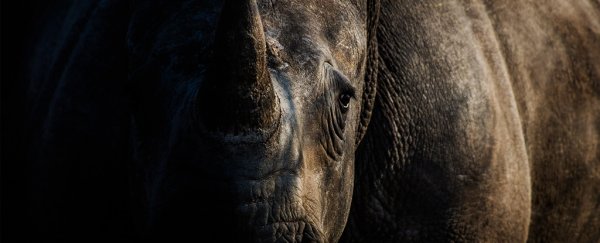By now, most of us can list a variety of ways our species is making a mess of this planet.
Canadian zoologist Sarah Otto reports in detail how humans have made a mess of things, with the aim of asking how it affects evolution overall. The answer isn't academic, either – it could show us just how bad things really are.
"The speed with which the biotic and abiotic environment of species has changed has already altered the evolutionary trajectory of species, a trend that promises to escalate," Otto says in her recent article.
A change in course for ecosystems is nothing new. Around 90 percent of all species that have lived on Earth have gone the way of the dodo, making extinction an inevitable feature of the biosphere.
But the forces that have seen the rise and fall of species in times gone by tend to be rather slow compared to what's been happening over the past century or so.
A hundred years ago, we humans numbered roughly 1.8 billion. Now our population is closer to 7.6 billion, having grown on average around 1 percent every year. If having more mouths to feed isn't bad enough, individual imprints on the landscape have grown by half a percent per year.
Having more people with a greater effect on the environment has led to an exponential growth in devastation, driving up the global extinction rate and seeing an end to a significant number of species in the space of a single human lifetime.
On average, we've stripped 8 percent of the carbon from the top 2 metres (6 feet) of topsoil, raised the temperature of the atmosphere by nearly 1 degree Celsius (1.8 degrees Fahrenheit), and lowered the pH of the oceans by about 0.1 units.
This impact isn't just monumental in scale. It's unprecedented in speed. Meaning we have little to tell us how biology responds to this new spin on 'natural' selection.
"Beyond the numbers, the world's biological diversity is changing, through evolutionary change at both the within and between species levels," says Otto.
The pressures affecting this shift in biodiversity can be categorised in various ways. Otto puts aside intentional selection pressures – those we deliberately enact by cross-breeding new varieties or genetic engineering – and focuses on those we affect incidentally.
For example, simply by physically modifying the landscape with new structures, we influence how animals move, plants grow, and how microbes proliferate.
This can have a drastic effect on whether a species survives or vanishes, or subtly influence its functions and morphology.
"The wing span of cliff swallows has evolved to be shorter near roads, with roadkilled swallows having longer wings, consistent with selection for increased manoeuverability in the face of traffic," says Otto.
We've also modified the living environment, rapidly transplanting species through boundaries that once would have impeded their spread.
And then there is the obvious pressure imposed by our predatory and gathering demands, hunting animals of the right size or culling weeds or pests that might affect our crop yields.
There's no shortage of examples of lost species and remarkable adaptations to human presence. But the rate at which new species appear is still a bit of a mystery.
"Less is known about how humans have altered the rate of speciation," says Otto.
There are plenty of estimates, with some of the less optimistic suggesting it could take millions of years for some aspects of biodiversity to spring back to pre-modern vigour.
As destructive as we are, we humans have also contributed a reasonable amount to increasing genetic diversity in some ways, whether through splitting populations apart or carving out niches in new environments.
This all adds up to a question of balance in biodiversity over a long timescale. Is some kind of large scale equilibrium achievable in this new evolutionary landscape? Or human pressures setting us up for an inevitable slide into ever increasing hardship?
We simply don't know. And Otto thinks that's a problem.
"As we have witnessed with the evolution of antibiotic resistance, humans may impose selection, but we will often not retain the upper hand," she warns.
When it comes to the environment, the news isn't always pleasant. But the fact we still know so little about our impact is something we should really be concerned about.
This study was published in Proceedings of the Royal Society B.
